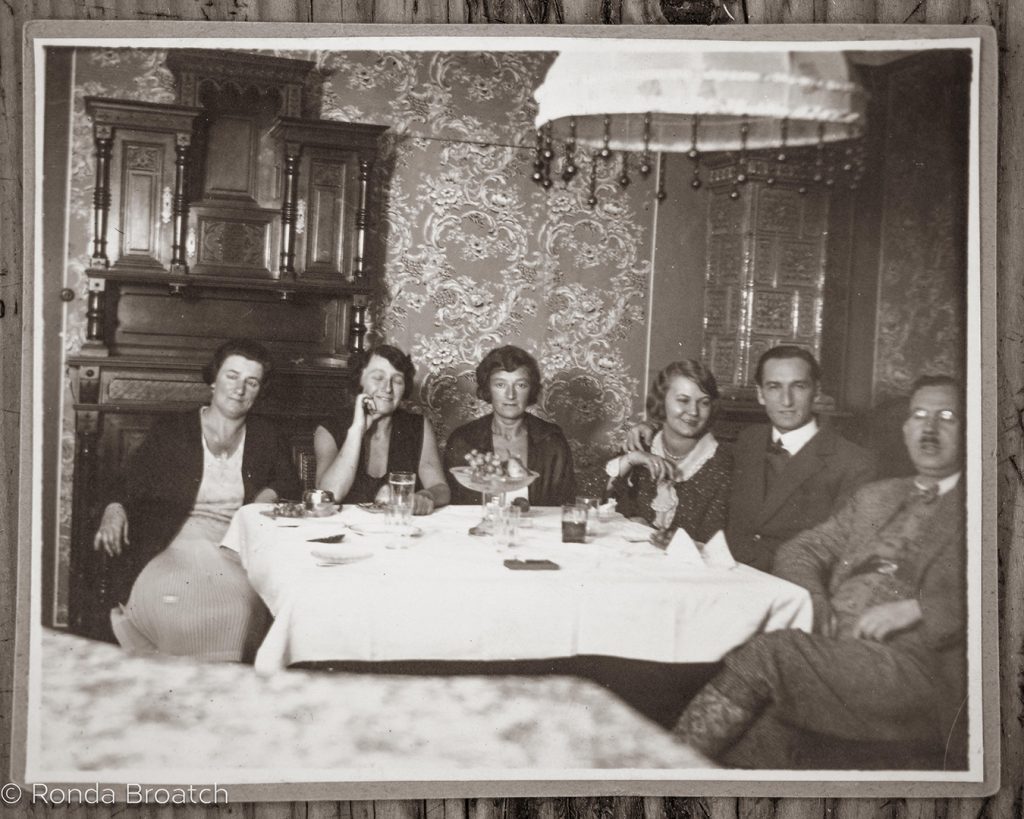25 years later,
my mother’s still unsure
we should have come.
You’ve never really suffered,
she reminds me, as though it were
a flaw. You don’t know what it means
to be a Jew. To be a family.
She calls us broken. Writes
something about fragmented shards
on Facebook and hopes we feel
how much our distance hurts her.
I try responding with something
about faith, tikkun olam and making
whole again. Don’t use that
‘zaumni’ language America
has taught you. Hifalutin. Abstruse.
Pretentious. Obscure. The word
in Russian breaks down
to beyond the mind.
You always belittle me. She says,
Point out my flaws. But I’d like to see you
make it in Ukraine. She thinks
I’d know then what it means
to be a Jew. Once I’ve been named
or beaten. Thinks I would never
have left home so young. Thinks
I’d be afraid the way she is.
And fear would make me
love her harder. And teach me
what a Jewish family is. If we had to
do it now, she says, all ten of us, leave
everything we know and cross
the waters to survive, I know
we wouldn’t make it. She cries.
Thinks of her brother. How far away
he lives now and refuses to come visit.
She cries harder. Believes my distance
is her punishment. At least one of us,
she says, is happy that we came.
Let ravens feed me, I’ll live on crumbs.*
on glass and paper, on bread
others call body and wine
others call blood, the sky swallowing
indiscriminately, branches misnamed
bone, unnoticed by trees, but wait,
who can survive on these alone?
Call our black wings “unkindness,”
call us “conspiracy,” watch us peck
long enough at clouds to find
their livers. If wheat ground to flour
can turn flesh, what’s to keep us
from growing full off eating nothing
but air?
*Title taken from Yankev Glatshteyn “The Joy to the Yiddish Word” translated by Ruth Whitman
________
Julia Kolchinksy Dasbach (www.juliakolchinksydasbach.com) emigrated from Ukraine as a Jewish refugee when she was six years old. She is the author of three poetry collections: The Many Names for Mother (Kent State University Press, 2019) (https://www.kentstateuniversitypress.com/2019/the-many-names-for-mother/), winner the Wick Poetry Prize , finalist for the Jewish Book Award; Don’t Touch the Bones (Lost Horse Press, 2020) http://www.losthorsepress.org/catalog/dont-touch-the-bones-julia-kolchinsky-dasbach/, winner of the Idaho Poetry Prize; and 40 WEEKS, forthcoming from YesYes Books in 2023. Her recent poems appear in Blackbird, American Poetry Review, and The Nation, among others. She holds an MFA from the University of Oregon and is completing her Ph.D. at the University of Pennsylvania. She lives in Philly with her two kids, two cats, one dog, and one husband. You can also find her on Twitter at @JKDPoetry. Order signed copies of her books by filling out this form: https://docs.google.com/forms/d/1GblDW6X0ARL1NLSsHTYhNQ_FrUqIZax86fw1GXR9YoI/edit
![[PANK]](https://pankmagazine.com/wp-content/themes/pank/assets/images/pank-logo-large.png)

